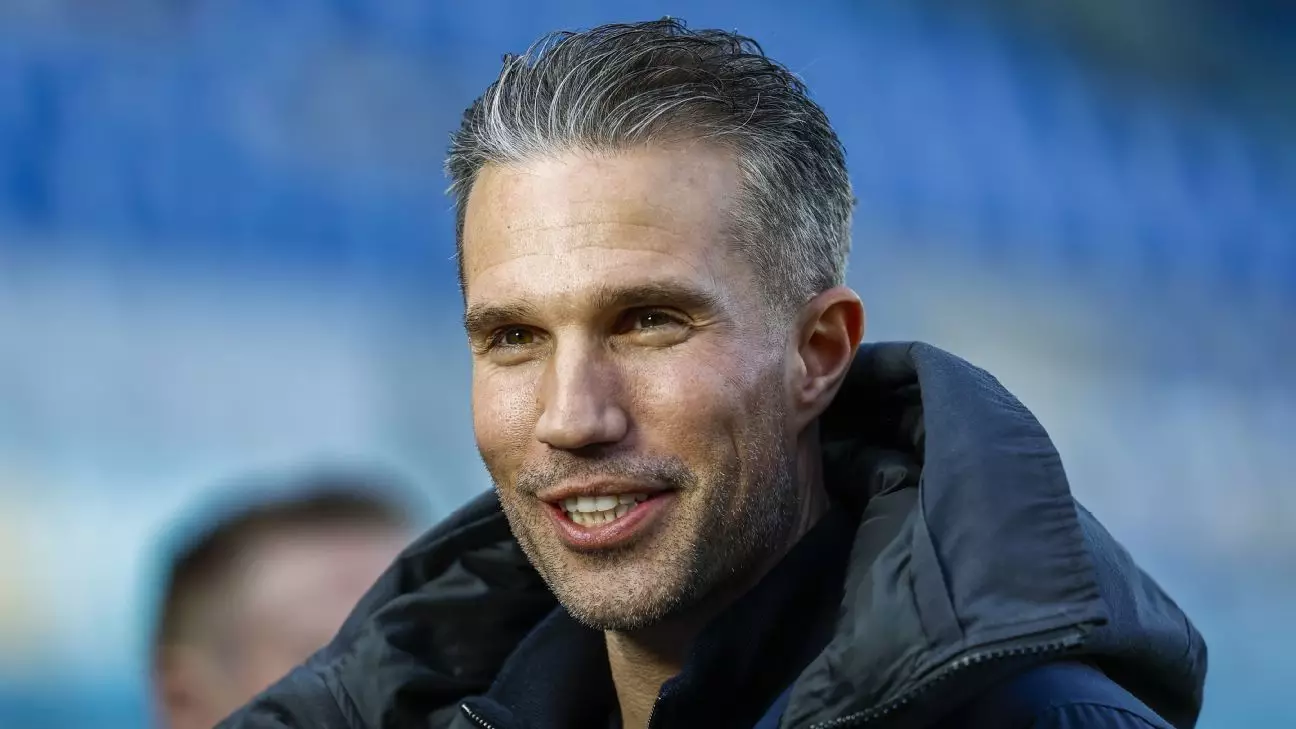Robin van Persie, once a celebrated striker gracing the football fields of Europe, is poised for a significant transition in his coaching career. Sources indicate that the charismatic 41-year-old is nearing a deal to become the head coach of Feyenoord, the club where his journey began. This development comes just one year into his managerial venture, which started at Heerenveen in the Eredivisie. Following a somewhat rapid ascent, his potential return to Rotterdam could signal a pivotal moment in both his career and the club’s future.
Van Persie’s prior stint at Heerenveen highlighted his ability to lead, as he successfully guided the team to a respectable 9th position in the league. Despite this initial success, the allure of coaching at Feyenoord—a club deeply intertwined with his personal history—is undeniable. The recent dismissal of Brian Priske marks a turbulent period for Feyenoord, which has sparked speculation that Van Persie’s emotional ties to the club may encourage him to accept the challenge. Should the negotiations go as anticipated, compensation will be necessary to release him from his current contract.
This upcoming transition is not merely a career move; it represents a return to his roots. Van Persie began and ended his illustrious playing career at Feyenoord, wherein he left an indelible mark that resonates with fans. His tenure with clubs such as Arsenal, Manchester United, and Fenerbahce solidified his status as one of Europe’s leading forwards, culminating in an impressive international record of 50 goals in 102 appearances for the Dutch national team. The prospect of reclaiming a role at the club that nurtured his talents is undoubtedly significant for the former player, potentially allowing him to replicate his success off the pitch.
Transitioning from a celebrated player to a head coach is not without its hurdles. Although Van Persie’s early managerial role has been positively received, stepping into a position at Feyenoord introduces heightened expectations. The pressure to succeed immediately will be compounded by the emotional investment of players and fans alike, all of whom recall his dazzling performances in the team colors. Through this lens, van Persie’s challenge will be to foster a new identity for the club while blending the nostalgia of the past with the ambitions for the future.
As negotiations progress, the impending unveiling of Van Persie as Feyenoord’s head coach will be watched closely by supporters and analysts alike. If finalized, this appointment could usher in a new era of revitalization for the club. As he prepares to embrace this opportunity, he carries the hopes of fans who wish to see a resurrection of the club’s former glory. Van Persie’s return is not just a career milestone but perhaps an emotional reclamation of a legacy that has yet to reach its full potential off the field. In this next chapter, he may just have the right formula to meld his passion for the game with an innovative leadership style that could redefine Feyenoord’s destiny.

